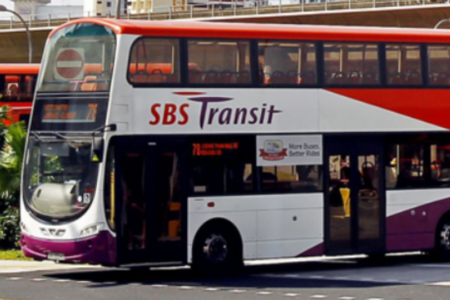The era of the COVID-19 pandemic has been a trying period for Singapore.
Circuit breaker measures were implemented from 7 April till June 2 to stem the spread of the deadly virus.
In an unprecedented move, these measures have resulted in the closure of workplaces, malls and outdoor areas by the government.
Many of the measures have been lifted as of today as we transition into Phase II of the safe transition. But community cases are still lingering in the single-digits.
For income-seeking investors, the last quarter was a troubling time as the mass closures and stay-home orders led to significant financial stress on REITs.
As a reminder, REITs derive the bulk of their income from rentals to their tenant base.
With many tenants under financial pressure, this has also resulted in a struggle for REITs to maintain their rental income flow.
With some REITs having already reported their earnings, we survey the landscape to see how they have fared.
Hospitality REITs
The pandemic has hit hospitality REITs the hardest.
With many airlines being almost completely grounded due to border closures, the travel industry has been suffering badly.
CDL Hospitality Trust (SGX: J85) issued a profit guidance warning of a plunge in distribution per unit (DPU) of around 60% to 70% for the first half of 2020 (1H 2020) due to temporary closures or low occupancies for most of their properties.
ARA US Hospitality Trust (SGX: XZL) has similarly issued a profit warning. Gross revenue has declined significantly and the REIT will report a net property loss.
No distributable income is expected for 1H 2020.
Ascott Residence Trust (SGX: HMN), or ART, is facing a similar predicament. International tourist arrivals declined 44% year on year from January to April this year and plunged 97% year on year in April 2020 alone.
As a result, ART’s DPU is expected to plunge by 65% to 75% year on year for 1H 2020.
From the above, it can be seen that hospitality REITs are suffering badly without much respite thus far.
Improvements in hotel occupancy can only come about once travel restarts. When this will happen is uncertain at this juncture.
Retail REITs
Retail REITs have also borne the brunt of the sharp plunge in footfall through malls.
SPH REIT (SGX: SK6U) reported a year on year fall of 64% in DPU for its third quarter 2020 earnings.
The result was due to plunges of more than 50% year on year in footfall for its key Singapore assets, Paragon and Clementi Mall.
CapitaLand Mall Trust (SGX: C38U), or CMT, fared slightly better, with 1H 2020’s DPU down 49% year on year.
The REIT reported a decline of 40.6% year on year in shopper traffic, while tenant sales per square foot were down 15.4% year on year.
The main reasons for the decline include rental waivers for tenants of CMT and lower gross turnover rent and car park income during the circuit breaker period.
Suntec REIT (SGX: T82U) also saw its gross revenue decline by 16.1% year on year for 1H 2020, while distributable income fell by 12.2% year on year.
DPU declined by 31.3% year on year to S$0.03293. Reasons include rent assistance for Suntec City tenants and the temporary closure of Suntec City Convention Centre.
With Phase II kicking in from June 19, investors should see improved contributions from retail REITs, even as they start to scale back tenant support packages.
Commercial and industrial REITs
Commercial REITs painted a mixed picture.
For the first half of 2020, Keppel REIT (SGX: K71U) enjoyed a slight 0.7% year on year increase in DPU as COVID-19 tenant relief measures were offset by higher contributions from a new acquisition in South Korea and the commencement of major leases in its Singapore portfolio.
CapitaLand Commercial Trust (SGX: C61U), or CCT, however, saw DPU plunge by 24.1% year on year for the first half of the year due to upgrading works, lower occupancies and rental waivers for tenants.
With more companies advocating a work-from-home culture, it remains to be seen if rental rates and occupancies will soften moving forward.
The larger capitalisation industrial REITs generally fared better than the smaller industrial REITs.
Mapletree Logistics Trust (SGX: M44U) reported a slight 1% year on year increase in its first-quarter 2021 DPU, while Keppel DC REIT (SGX: AJBU) announced a 13.6% year on year jump in DPU as its data centres remained operational throughout the lockdowns.
Mapletree Industrial Trust (SGX: ME8U) reported a slight 7.4% year on year decline in DPU as it withheld a portion of tax-exempt income to mitigate the impact of rental reliefs for tenants.
Smaller industrial REIT Sabana REIT (SGX: M1GU) reported a sharp 65.7% year on year decline in DPU for the first half of the year as it retained more money for tenant support measures. The REIT, however, has announced that it plans to merge with ESR-REIT (SGX: J91U), subject to approvals being met.
As it stands, it appears that specialised niche industrial REITs such as Keppel DC REIT can continue to do well, while larger industrial REITs have weathered the pandemic much better thus far.
With share prices battered to multi-year lows, many attractive investment opportunities have emerged. In a special FREE report, we show you 3 stocks that we think will be suitable for our portfolio. Simply click here to scoop up your FREE copy… before the next stock market rally.
Click here to like and follow us on Facebook and here for our Telegram group.
Disclaimer: Royston Yang owns shares in Keppel DC REIT.




